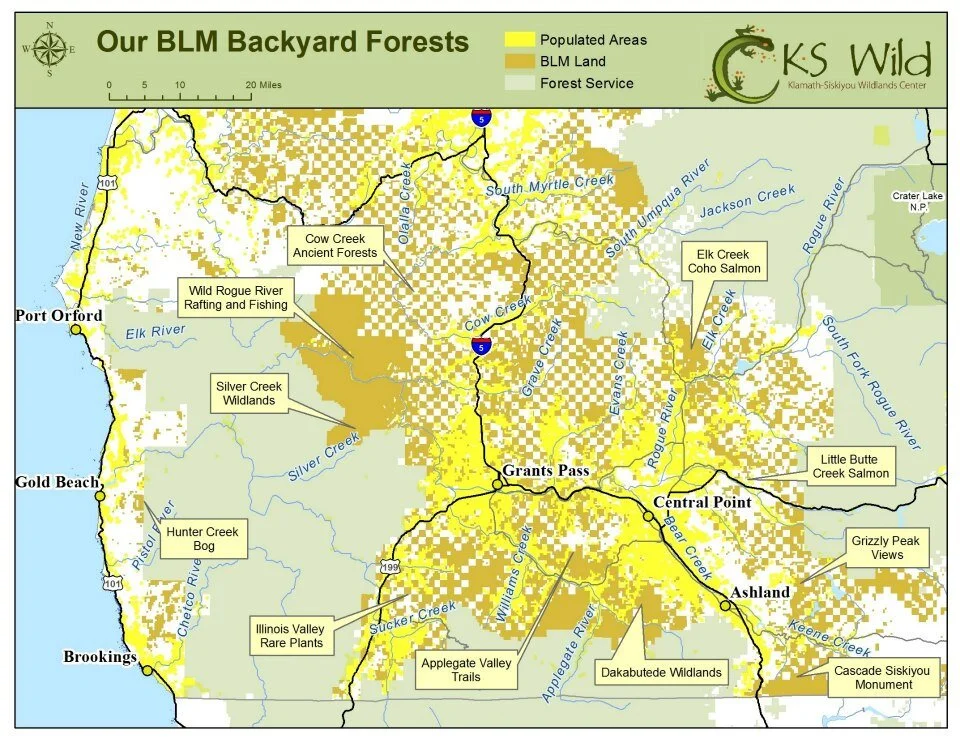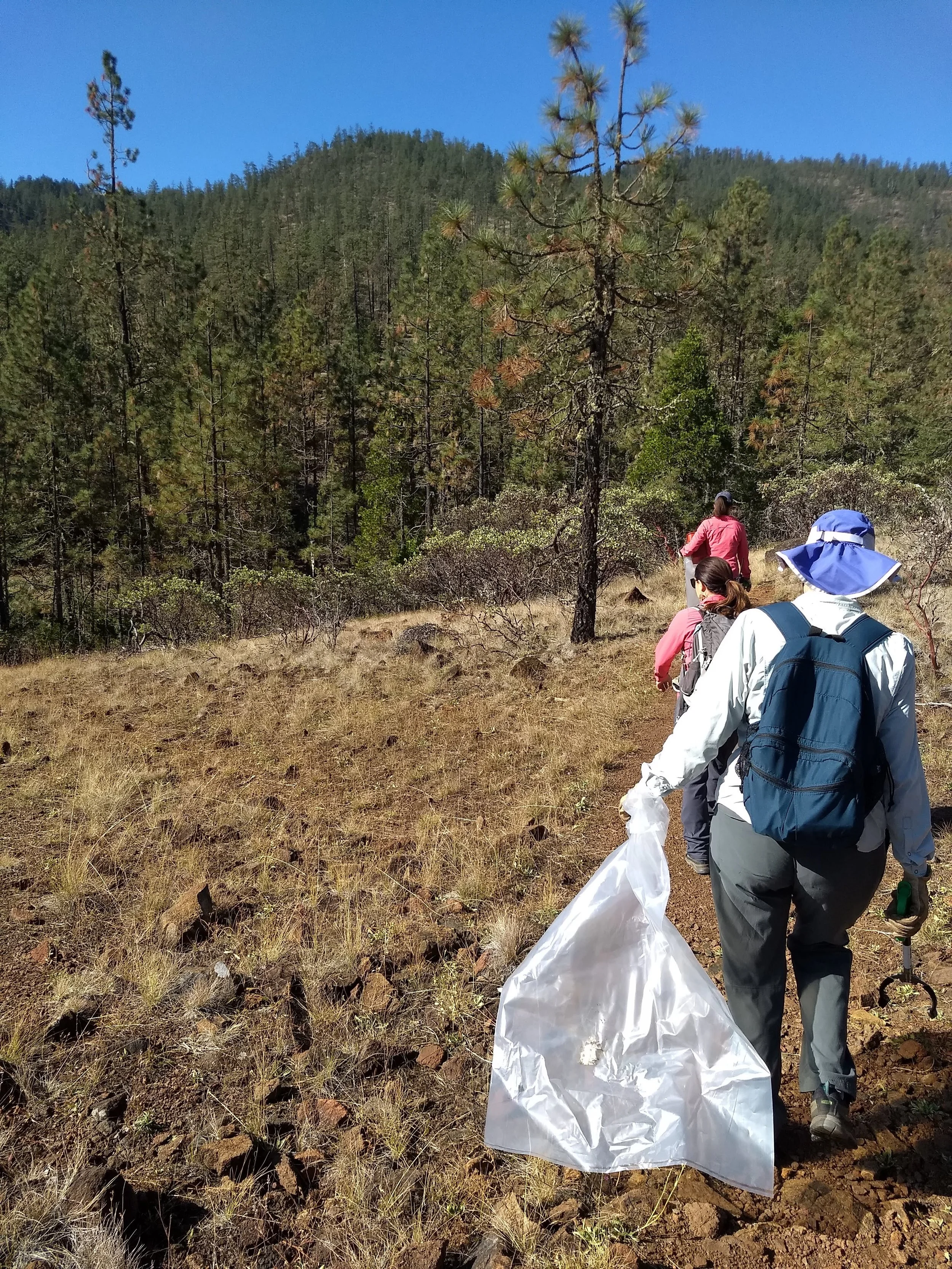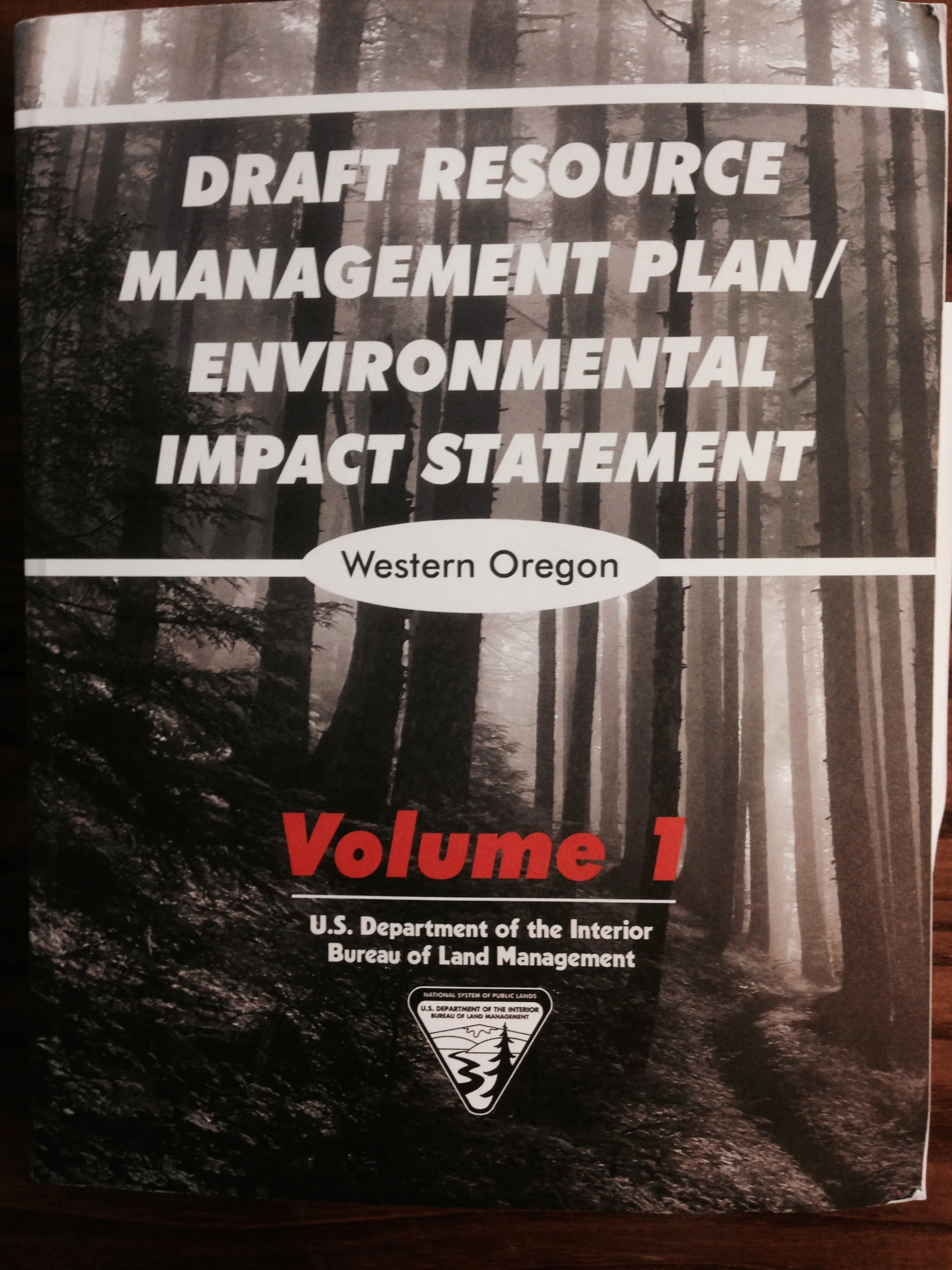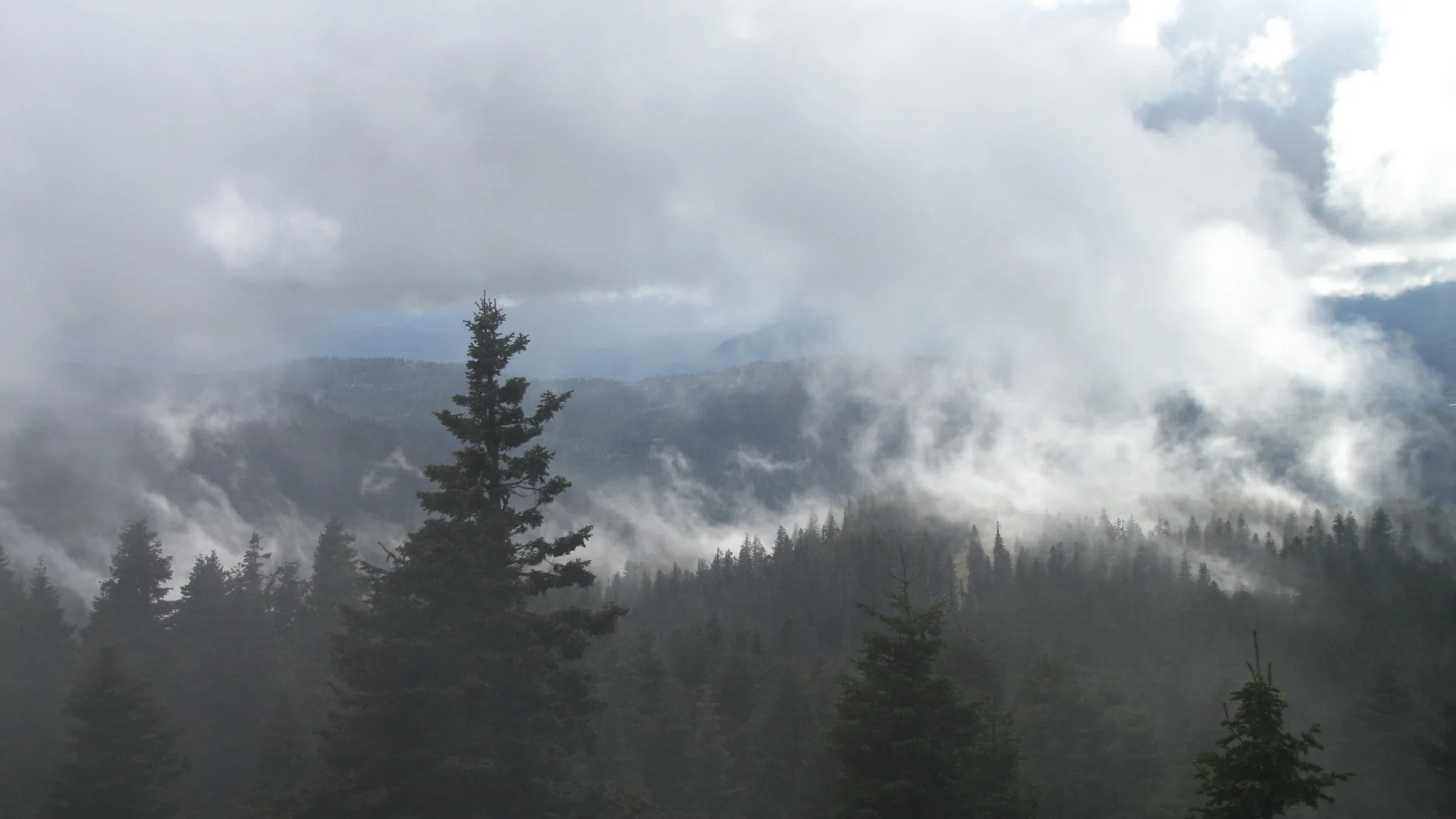In late November 2019, a Washington D.C. judge ruled that 2.5 million acres of public forests managed by BLM in western Oregon have a timber-first mandate. If this ruling is upheld, the fate of these public lands will include more ancient forests turned to stump fields, at the expense of our climate, our communities, and our water security.
Read MoreThe morning of September 21st, KS Wild gathered with volunteers and the Forest Service along the banks of the Wild and Scenic Illinois River to celebrate National Public Lands Day and protect this area from illegal Off Highway Vehicle (OHV) use. See a slideshow of our stewardship action that day!
Read MoreOver this past weekend KS Wild and our strong team of volunteers assisted the Forest Service and spent two days repairing and closing illegal routes made by OHV users near the base of Eight Dollar Mountain. We picked up and hauled away 2 truck loads of trash, closed various routes, and installed 'Botanical Area Restoration' signage along the roadway.
Read MoreWhen the BLM uses taxpayer dollars to plan controversial public lands logging projects, like the Pickett West native forest timber sale, you have a right to know what they are up to. Transparent public lands management is at the heart of how government is supposed to function in our Democracy.
Read More
Make your voice heard: Join your local community in Curry and Josephine County to speak out to Senator Merkley! Now is a critical time for southern Oregon to engage and support issues that matter to our forests, environmental laws, and communities.
Following decades of fire suppression and logging that created dense young forests, a return to ecosystem resiliency requires thinning second-growth plantations, retaining large trees and forest canopy, and returning the role of fire to these fire-dependent forests.
Read MoreIncreasingly timber interests, conservationists including KS Wild, scientists and federal land management agencies are coming together to focus logging activities on thinning previously logged plantations and in fire-evolved forest stands in which fire suppression has resulted in encroachment by less resilient off-site conifers.
Read MoreOn August 5, the Bureau of Land Management (BLM) signed a management plan for western Oregon, largely ignoring a formal protest from 22 conservation and fishing groups. The BLM plan eliminates protections for streamside forests, increases clearcutting in wet forests, and removes 2.6 million acres of federally managed public forests from the 1994 Northwest Forest Plan
Read MoreAfter four local public hearings and thousands of letters to elected officials, support for the Cascade-Siskiyou National Monument has been heard! On Thursday, January 12, 2017, President Obama used his authority under the Antiquities Act to expand the Cascade-Siskiyou National Monument in southern Oregon.
Read MoreToday, the backyard forests of the Applegate are primarily managed by the BLM. The guiding document for the future of these public lands is the Resource Management Plan (RMP), which includes all aspects of land management ranging from restoration objectives, to fire prevention measures and logging plans.
Read MoreThe Bureau of Land Management administers the public forests that surround communities in Western Oregon. These are our backyard forests! Places like the Wild Rogue River, the Applegate Valley foothills and rare plant hotspots in the Illinois Valley deserve our best conservation efforts.
Read MoreEnvironmental stewards can operate in a variety of ways: as practitioners, donors, and doers. Our staff works hard each day as practitioners, working directly with government agencies and stakeholders to promote best practices in the management of our public lands. Foundations and community members serve as vital donors, providing financial support for our work. The doers are all of you—KS Wild members, volunteers, interns, and partners—who take part in our work, voice your support for public lands, or even just get out on a hike.
Read MoreWhile most Americans cherish the idea that public lands belong to and benefit all of us, corporate timber, mining and grazing interests have long sought to privatize public lands in order to maximize profits to their respective industries. While subsidized logging, mining and grazing occur on the vast majority of public lands, these extremists bristle at the idea of there being any rules regarding their exploitation of our forests and rivers.
Read MoreWestern Oregon’s BLM lands support salmon, steelhead, and wildlife while delivering clean water and recreational values to the public. These forests are source-drinking watersheds for hun-dreds of thousands of Oregonians, they sequester large amounts of carbon, and they provide crucial ecological functions. The natural amenities found on these public lands are highly valued and sought after, from local residents to tourists from around the world.
Read MoreThe public lands in the Smith River Watershed are legendary for their unique botanical diver- sity and for providing clear, cold water to the largest un-damned river system on the West Coast. It is a stunning and spectacular part of America’s natural heritage that is literally like nowhere else on Earth.
Read More














